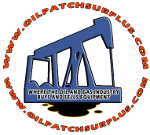
No, we aren’t talking about what type of detergent works best on dirty covies or which style of pressure washers are used on muddy rigs – we are talking about cleaning products designed with only one purpose in mind: to keep oilfield equipment and operations running efficiently and safely.
When it comes to these specific products, there are two categories that play larger roles than the others: the products that are used to clean the pipelines and those that are used to clean the oil itself.
Below, we’ll give you a little insight on the types of oilfield products that focus on cleaning both the pipelines and the oil itself, and why these products are so important.
Cleaning the Pipelines
Without the pipelines themselves, we would have no way to transport the oil we work so hard to extract. If this were the case, we would have no oil to heat our homes, fuel our vehicles, or manufacture the petroleum made products we use everyday. Pipelines are crucial to our day-to-day lives, even if we can’t see them.
In Canada alone, there are over 800,000 kilometers of pipelines being used for the transmission, gathering, and distribution of oil – imagine how many pipelines there are across the world – and all of them need to be maintained.
Pipelines that are not properly cleaned and maintained are not only costly (because they reduce flow and therefore production rates), but they are also dangerous for both the environment and the workers dealing with them.
Cue the pigs.
Pipeline Pigs, That Is
In the simplest terms possible, pipeline pigs clean pipelines. These “pigs” are actually bullet shaped devices, typically made from rubber, that are pushed through pipelines for cleaning and other maintenance purposes.
They work to clear debris, built up substances, and unwanted liquids or gasses from the pipelines.
It’s no surprise they are one of the most widely used products throughout the oil and gas industry.
Cleaning the Oil
So we have a safe and clean method of transporting our oil, thanks to pipeline pigs – but did you know that the oil itself needs to be “cleaned” as well?
The oil that we extract from the ground is not immediately ready for use – obviously. Among other processes that need to be carried out in order to make this natural product usable for the purposes we need, it needs to be cleaned.
In this case, the term “cleaned” refers to the oil being separated from other liquid and gaseous substances that may be mixed in with it. For this, a separator is used.
Oil and Gas Separators
These separators typically work to separate oil, gas, and water from one another in a set of stages to ensure the best and cleanest separation possible.
They can also be referred to as degassers (which are separators designed to remove contaminated gas bubbles from a liquid stream) or deliquilizers (which are separators used to remove dispersed droplets from a bulk gas stream).
Without these separators, we would have no way to bring the oil to a pure and usable state.
Keeping It Clean
As you can see, without these oilfield specific cleaning products keeping the pipeline equipment maintained and the oil pure, the industry would not be able to satisfy the consistently growing demand for oil related products and services – especially not in a safe and efficient manner.
